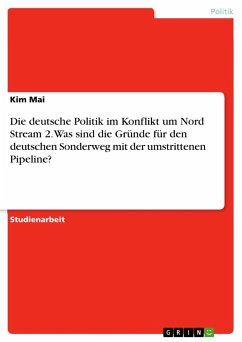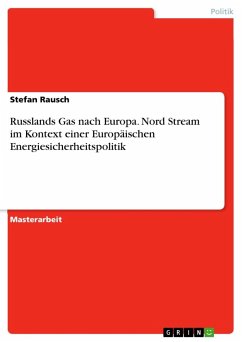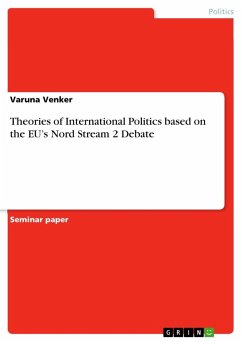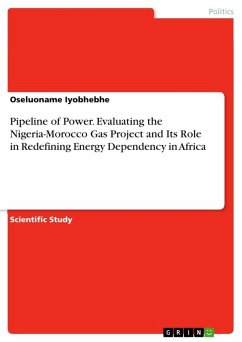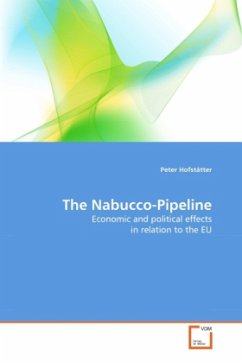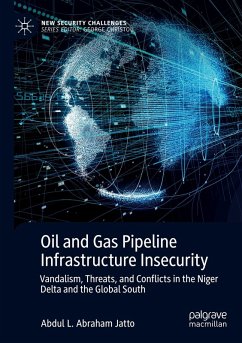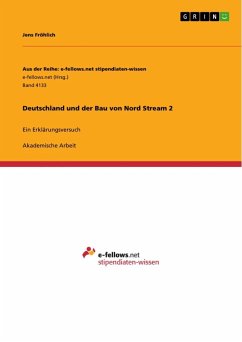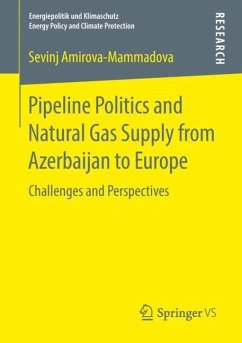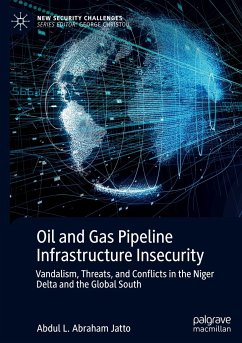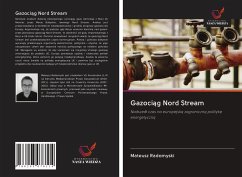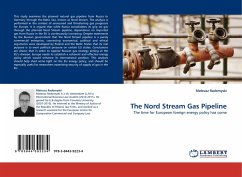
The Nord Stream Gas Pipeline
The time for European foreign energy policy has come
Versandkostenfrei!
Versandfertig in 6-10 Tagen
32,99 €
inkl. MwSt.

PAYBACK Punkte
16 °P sammeln!
This study examines the planned natural gas pipeline from Russia to Germany through the Baltic Sea, known as Nord Stream. The analysis is performed in the context of unsecured and threatening gas prognosis for Europe. It is argued that while Russia consolidates its grip on gas through the planned Nord Stream pipeline, dependence on imported gas from Russia in the EU is continuously increasing. Despite statements by the Russian government that the Nord Stream pipeline is a purely commercial enterprise, convincing economical, political and ethical arguments were developed by Poland and the Balti...
This study examines the planned natural gas pipeline from Russia to Germany through the Baltic Sea, known as Nord Stream. The analysis is performed in the context of unsecured and threatening gas prognosis for Europe. It is argued that while Russia consolidates its grip on gas through the planned Nord Stream pipeline, dependence on imported gas from Russia in the EU is continuously increasing. Despite statements by the Russian government that the Nord Stream pipeline is a purely commercial enterprise, convincing economical, political and ethical arguments were developed by Poland and the Baltic States that its real purpose is to exert political pressure on certain EU states. Conclusions are drawn that in order to oppose Russian gas strategy aiming at the EU s division, Europe needs to establish a coherent and effective energy policy which would enhance its international position. This analysis should help shed some light on the EU energy policy, and should be especially useful toresearchers examining security of supply of gas in the EU.



